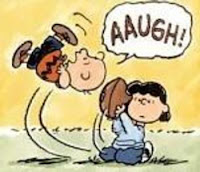
About 20 years ago, while I was employed at the investment firm
Scudder, Stevens & Clark, I developed and marketed several mortgage-backed securities funds targeted at Japanese institutional investors.
This was a terrific experience for me. The funds were a success, and performance was very good. In addition, for a period of about 8 years or so, I had the chance to go to Japan two or three times a year to meet with investors.
Two of the funds I marketed were sponsored by Fannie Mae. Fannie was an important part of our marketing story, since most international investors knew Fannie.
Foreign investors assumed that Fannie Mae carried the implicit backing of our government. And, of course, this proved to be the case a couple of years ago, when the U.S. government bailed out both Fannie and Freddie Mac.
I was very impressed with the people I worked with from Fannie. They were very smart, and worked long hours. In addition, investors in Fannie Mae enjoyed terrific returns, since the stock was one of the best performers in the 1990's.
The head of
Fannnie Mae during those years was David Maxwell. Mr. Maxwell embodied all of the qualities that I admired about Fannie Mae: smart, driven, and very skeptical of Wall Street.
Here's what author Jim Collins wrote about Maxwell in 2003 in
Fortune Magazine's profile of the 10 Greatest
CEO's:
No. 7 David Maxwell turned a turnaround into art
Fannie Mae was losing $1 million a day when he arrived--"an opportunity to make [it] into a great company."
In 1981, as the stock of Chrysler hit an all-time low, America was beginning its enthrallment with the man hired to save it. Lee Iacocca would soon be a national icon--bestselling author, star of more than 80 commercials, and everyone's image of a turnaround artist.
That same year, as the stock of Fannie Mae hit an all-time low, a different executive was hired to save the deeply troubled mortgage lender. David Maxwell would not become a national icon--nor even a recognizable name. Yet by the time both men retired in the early 1990s, Maxwell's Fannie Mae had beat the stock market at a rate more than twice that attained by Chrysler under Iacocca.
More inspired than inspiring, more diligent than dazzling, Maxwell took a burning house and not only saved it but built it into a cathedral. Some steps, such as selling off $10 billion in unprofitable mortgages, were classic fireman stuff. But his deepest genius was to frame the rebuilding around a mission: strengthening America's social fabric by democratizing home ownership. If Fannie Mae did its job well, people traditionally excluded from owning homes --minorities, immigrants, single-parent families--could more easily claim their part of the American dream. If turnaround is an art, Maxwell was its Michelangelo.
http://money.cnn.com/magazines/fortune/fortune_archive/2003/07/21/346095/index.htm
Unfortunately, when David Maxwell retired in 1991, he was succeeded by James Johnson, formerly head of Lehman Brothers.
In my opinion, Johnson was everything that Maxwell was not. He epitomized what Main Street thinks of Wall Street: very political, slick, and wildly overcompensated for his efforts.
We all know what happened. Fannie Mae transformed from one of the most successful government programs ever to a massive government headache requiring hundreds of billions of bailout money from the government.
David Brooks had a column in the
New York Times this morning titled "Who is James Johnson?" He discusses Mr. Johnson's role in what has turned out to be one of the largest financial debacle's in our country's history. Here's an excerpt:
The Fannie Mae scandal has gotten relatively little media attention because many of the participants are still powerful, admired and well connected. But Gretchen Morgenson, a Times colleague, and the financial analyst Joshua Rosner have rectified that, writing “Reckless Endangerment,” a brave book that exposes the affair in clear and gripping form.
The story centers around James Johnson, a Democratic sage with a raft of prestigious connections. Appointed as chief executive of Fannie Mae in 1991, Johnson started an aggressive effort to expand homeownership.
Back then, Fannie Mae could raise money at low interest rates because the federal government implicitly guaranteed its debt. In 1995, according to the Congressional Budget Office, this implied guarantee netted the agency $7 billion. Instead of using that money to help buyers, Johnson and other executives kept $2.1 billion for themselves and their shareholders. They used it to further the cause — expanding their clout, their salaries and their bonuses. They did the things that every special-interest group does to advance its interests.
Who Is James Johnson? - NYTimes.comI wasn't going to buy "Reckless Endangerment", since I feel like I have already relived the last decade enough.
But I think I might now, if only to read about how a company that I deeply admired was perverted and ultimately destroyed by a group of insiders.



















